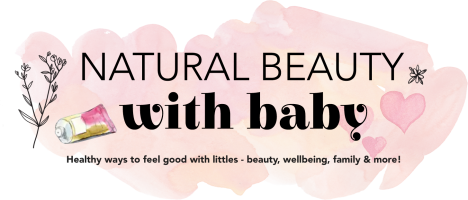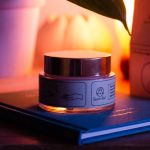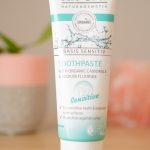“Debunking common dental myths – what you need to know” is a collaborative post.
Navigating the realm of dental care often feels like a journey through a maze of advice, tips, and well-intentioned but sometimes misleading information. It’s time to separate fact from fiction and debunk some of the common dental myths that have circulated for generations.
So, grab your toothbrush and let’s set the record straight on what you really need to know for optimal oral health!
Myth #1: you should brush your teeth immediately after eating
It’s a common belief that brushing your teeth right after a meal is the best way to keep them healthy. However, this is a myth. When you eat, the acidity in your mouth increases as a natural part of digestion.
Brushing immediately can actually harm your enamel, especially if you’ve consumed acidic foods or drinks. Instead, wait at least 30 minutes to allow your saliva to neutralise acids, and then brush with a fluoride toothpaste for the best results.
Myth #2: if your gums bleed, you should avoid flossing
Contrary to what some may think, bleeding gums are not a sign to avoid flossing. In fact, they could be an indication of the opposite – that you need to floss more regularly. Bleeding gums are often a sign of gingivitis, an early stage of gum disease caused by the buildup of plaque.
Gentle and consistent flossing can help remove plaque and reduce inflammation. If bleeding persists, consult your dentist for advice.
Myth #3: sugar is the sole culprit for tooth decay
While it’s true that sugar contributes to tooth decay, it’s not the only factor. The frequency and timing of sugar consumption play a crucial role. Sipping on sugary drinks throughout the day or consuming sweets before bedtime can be more harmful than eating them in one sitting.
Additionally, starches like bread and chips can break down into sugars, contributing to decay. Brushing, flossing, and regular dental check-ups are essential for maintaining oral health, regardless of sugar intake.
Myth #4: you only need to see the dentist if you have tooth pain
Don’t wait for tooth pain to be your signal for a dental visit. Preventive care is key to maintaining a healthy smile. Regular check-ups allow your dentist to catch issues early, preventing them from progressing to a point where you might experience pain.
Dental professionals can also provide valuable advice on your oral care routine and catch potential problems, such as cavities and gum disease, in their infancy.
Myth #5: teeth straightening at home isn’t effective
For moderate misalignment, there can be various benefits of teeth straightening at home with the help of a reliable company like ALIGNERCO. This modern approach provides unparalleled convenience for one thing, allowing individuals to initiate their orthodontic journey without frequent office visits.
What’s more, the process begins with a personalised touch – a dental impression kit delivered to your doorstep, ensuring a comfortable and precise fit for the clear aligners.
Beyond the subtle aesthetics and cost-effectiveness, at-home teeth straightening provides flexibility and control, letting you manage your treatment timeline at your own pace.
Myth #6: more toothpaste equals better cleaning
Contrary to the advertisements showing a toothbrush coated in a full strip of toothpaste, a little goes a long way. Using too much toothpaste can lead to excessive foaming and might be less effective. For adults, a pea-sized amount of toothpaste is sufficient. The key is the technique – a thorough two-minute brushing, covering all surfaces of your teeth, is more important than the amount of toothpaste.
Myth #7: dental health is separate from overall health
Your oral health is intricately connected to your overall well-being. Conditions like gum disease have been linked to systemic issues, including heart disease, diabetes, and respiratory problems. Taking care of your teeth and gums is not just about a sparkling smile; it’s an investment in your overall health.
Myth #8: baby teeth aren’t important because they fall out anyway
Despite the eventual loss of baby teeth, their significance in a child’s development cannot be overstated. These initial teeth play a pivotal role in fostering proper speech development, preserving space for the forthcoming adult teeth, and enabling effective food chewing.
Regrettably, nearly one in four children in the UK contends with early tooth decay, often necessitating surgery under general anaesthetic. Disregarding the importance of baby teeth is a substantial dental oversight, potentially leading to complications that impact the growth of permanent teeth and, notably, causing considerable discomfort and distress to the child.
Myth #9: you should rinse your mouth immediately after brushing
While it might seem like a good practice to rinse your mouth immediately after brushing, it’s better to let the toothpaste residue stay on your teeth for some time. This allows the fluoride to continue protecting your teeth.
If you rinse right away, you may wash away the fluoride before it has a chance to do its job. Spit out the excess toothpaste, but skip the rinse for optimal benefit.
Final thoughts on debunking common dental myths
Now armed with the truth behind these common dental myths, you can approach your oral care routine with confidence.
Remember, maintaining a healthy smile involves a combination of regular dental visits, proper oral hygiene practices, and a dose of myth-busting wisdom. Your teeth and gums will thank you for it, and you’ll be on your way to a brighter, healthier smile.






